The 1985–1988 Rugby League World Cup was the ninth edition of the Rugby League World Cup. Unlike previous World Cups that were held over a couple of months, this World Cup was held over the course of three years with teams playing each other on a home and away basis.
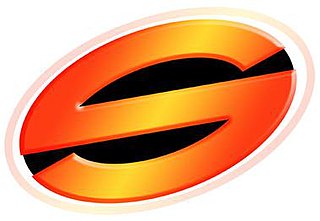
Super League was an Australian rugby league football administrative body that conducted professional competition in Australia and New Zealand for one season in 1997. Along with Super League of Europe, it was created by News Corporation during the Super League war which arose following an unsuccessful attempt to purchase the pay television rights to rugby league in Australia. After two years of legal battles the competition was played for a single season in 1997 alongside the rival Australian Rugby League (ARL) competition before the two merged in 1998 to form the National Rugby League (NRL).
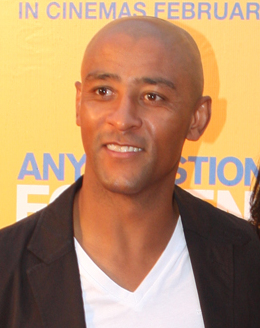
George Musarurwa Gregan AM is a retired Australian rugby union player, and is currently Australia's second most capped international player.

The Great Britain national rugby league team represents Great Britain in rugby league. Administered by the Rugby Football League (RFL), the team is nicknamed The Lions.
The Australian national rugby league team, the Kangaroos, have represented Australia in senior men's rugby league football competitions since the establishment of the game in Australia in 1908. Administered by the Australian Rugby League Commission, the Kangaroos are ranked first in the IRL Men's World Rankings. The team is the most successful in Rugby League World Cup history, having won the competition 12 times, and contested 15 of the 16 finals, only failing to reach the final in the 1954 inaugural tournament. Only five nations have beaten Australia in test matches, and Australia has an overall win percentage of 69%.
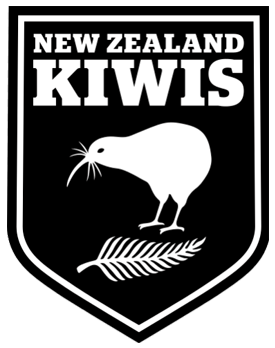
The New Zealand national rugby league team has represented New Zealand in rugby league since 1907. Administered by the New Zealand Rugby League, they are commonly known as the Kiwis, after the native bird of that name. The team's colours are black and white, with the dominant colour being black, and the players perform a haka before every match they play as a challenge to their opponents. The New Zealand Kiwis are currently second in the IRL World Rankings. Since the 1980s, most New Zealand representatives have been based overseas, in the professional National Rugby League and Super League competitions. Before that, players were selected entirely from clubs in domestic New Zealand leagues.

The France national rugby league team represents France in international rugby league matches. They are referred to as les Chanticleers or less commonly as les Tricolores. The team is run under the auspices of the Fédération Française de Rugby à XIII.

The England national rugby league team represents England in international rugby league since the first international match in 1904. It is controlled by the Rugby Football League (RFL), the governing body for rugby league in England, and participated in the Rugby League World Cup and other test matches.
The 1999 Rugby League Tri-Nations series was contested by Australia, Great Britain and New Zealand in 1999. It was the first multi-national rugby league tournament to feature the sport's three world powers since the 1989–92 World Cup. Co-hosts Australia and New Zealand played in the final, which was narrowly won by the Kangaroos. Great Britain didn't win a game of the tournament.

The International Rugby League (IRL) is the global governing body for the sport of rugby league football. The IRL organises the Rugby League World Cup, the oldest international rugby World Cup, as well as the Women's and Wheelchair equivalent.
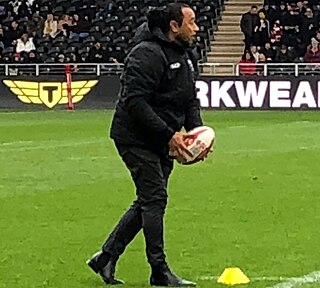
Nigel Faletoese Vagana, also known by the nicknames of "Pablo", and "Chiko", is a former professional rugby league footballer who played in the 1990s and 2000s, as a wing, centre and five-eighth. A New Zealand and Samoa international representative, he retired as the Kiwis' all-time top try-scorer with 19. Vagana played club football in New Zealand for the Warriors, in England for Warrington, and in Australia for the Canterbury-Bankstown Bulldogs, Cronulla-Sutherland Sharks and the South Sydney Rabbitohs. Vagana represented the New Zealand national team 32 times between 1998 and 2006, including playing in the 2000 World Cup. He is also the cousin of Bradford Bulls prop-forward Joe Vagana, and former Silver Ferns netball player Linda Vagana.
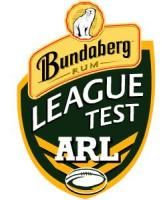
The Anzac Test was an annual rugby league football test match played between Australia and New Zealand for the Bill Kelly Memorial Trophy.

Brian "Bluey" McClennan is a New Zealand former professional rugby league footballer and coach. He was previously the head coach of the New Zealand national team and then England's Leeds Rhinos club.
Wheelchair rugby league is a wheelchair-based version of rugby league football, one of two recognised disability versions of the sport. It was developed in France in 2000. Unlike other wheelchair sports, people without disabilities are allowed to compete in top-level competition. The sport is also unique in the fact that men and women of any age can play against each other in top-level competition.
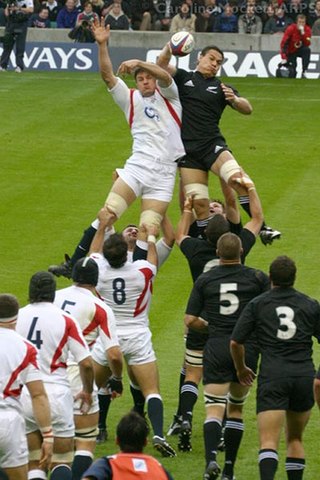
Rugby union has been played in New Zealand since 1870 and is the most popular sport in the country as well as being its national sport. In a 2023 survey, 75% of respondents said they followed the sport.
The 2006 New Zealand rugby league season was the 99th season of rugby league that had been played in New Zealand. The main feature of the year was the seventh season of the Bartercard Cup competition that was run by the New Zealand Rugby League. The Auckland Lions won the Cup by defeating the Canterbury Bulls 25–18 in the grand final.

The Rugby League World Cup is an international rugby league tournament contested by the top national men's representative teams. The tournament is administered by the International Rugby League and was first held in France in 1954, which was the first World Cup held for any form of rugby football.
The Rugby League Four Nations was a rugby league football tournament run in partnership between Australia, England, New Zealand, and a guest nation which changed with every edition.

The 2019 Oceania Cup was the inaugural edition of the Oceania Cup. Contested by six teams, the competition began in June and concluded in November.
The Rugby League Pacific Championship is a rugby league tournament for national teams in Oceania. Its inaugural tournament was in 2019 as the "Oceania Cup".













